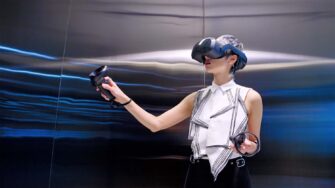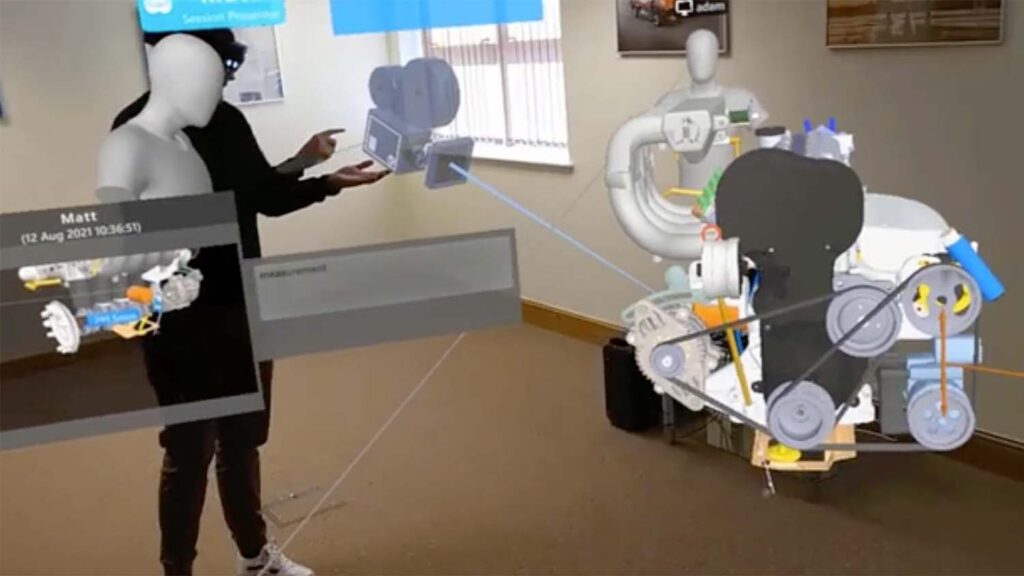Theorem Solutions has added a raft of new features to its latest portfolio release for data preparation for XR, device support and remote rendering, in addition to a new Theorem-AR app for mobile devices.
A key feature of the new release is the enhanced support for the Microsoft HoloLens 2, helping reduce the barrier to working and interacting with huge quantities of design data that can be rendered in the cloud using remote rendering solution Microsoft ARR.
As official Microsoft Mixed Reality Partners, Theorem says its product suite is developed to keep pace with Microsoft and its development roadmap, offering users a robust visualisation experience, while using their design data for full scale, in context, XR visualisation with high quality rendering.
Besides general additional support for remote rendering, for HoloLens 2 users the new release now offers users a full Factory Layout capability in ARR, with the ability for rendering, and interacting with, huge quantities of data. Additionally, data that is rendered in the cloud by Microsoft can now be picked up and interacted with, receiving live feedback from the server.

The latest release also adds support for the HTC Vive Focus 3, which takes advantage of Vive Business streaming, using WiFi to render data and then stream it from the user’s workstation straight to the headset.
The Focus 3 joins the Microsoft HoloLens 2, Magic Leap, Oculus Rift, Windows, Android and iOS devices among Theorem’s supported devices.
A new Theorem-AR app included in this release aims to help users to prepare, optimise and visualise their 3D design data for use on Android, iOS and Windows devices.
At the core of Theorem’s offering remains its automated CAD data preparation, where users can drag and drop their design data on to the server, ‘save as’ from within their native CAD applications, or export directly from their PLM system for use in Extended Reality.
Theorem-XR supports all major CAD and lightweight input formats and outputs to Theorem’s engineering focused XR experiences for design review, factory layout, training, visualisation and visual digital twin, or for the creation of Unity or Unreal assets for use in internally developed XR solutions.
Theorem’s Visualization Pipeline (Theorem-VP) is now capable of importing data from 3DExperience, Catia V5, Creo, Creo View, ICEM Reference Manager, Inventor, JT, NX or Solidworks, while it supports inputs/outputs for photo realistic rendering using Alias, Maya, VRED, existing lightweight viewing technologies JT, Creo View.pvz, glTF, or FBX for use in XR based technologies powered by Unity.
As well as processing part files geometry, Theorem-VP can retain product structure and metadata, including animation data, to further enrich the value of XR content.
By only needing to prepare data once, Theorem says that the latest version is ideal for the individual and the enterprise.
“New extended reality solutions and devices for delivering XR Experiences are evolving at a breath-taking pace, however, without data prepared and optimised correctly, they struggle to deliver value,” said Theorem Solutions marketing director Kevin Levy.
“Theorem-XR is a complimentary technology that works for the individual, the enterprise, at all levels and at all stages of the Extended Reality journey, enabling the user to optimise, visualise and collaborate around their design data.”
Installed on the Cloud or on premise, a user can simply drag and drop their data directly on to the Theorem XR server, ‘Save as’ from within CAD, export directly from PLM, or run-in batch mode. All options are capable of delivering rich, high-quality assets for use in any Augmented, Mixed or Virtual Reality XR device-without the need for time intensive rework, with the data only needs to be prepared once for use on all supported device types.
“Backed by 30+ years of CAD data optimisation and preparation experience, as a member of the Microsoft Mixed Reality Partner Program (MRPP), and partner to all major CAD vendors, Theorem-XR provides a robust and agile solution for now and the future,” concluded Levy.






